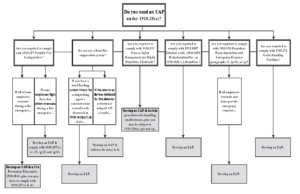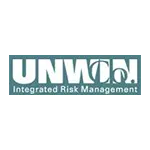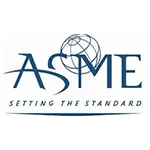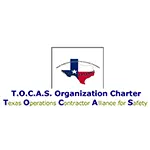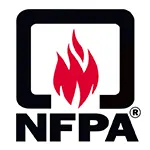Let us help you make sense of PSM / RMP!
My friend Brian Chapin will be offering an open-enrollment PSM/RMP class in Burleson, Texas, July 8th to 11th, 2025. Brian is an absolute pro in NH3 Refrigeration Process Safety. Anyone who attends will also get a FREE membership to SAFTENG. You can get more information on the class with this link.
CLICK HERE to Renew your Membership
CLICK HERE for a NEW Membership
CLICK HERE to see eligibility requirements for FREE Membership
If you have any questions, please contact m
SAFTENG has:
- Over 18,000 categorized unsafe acts/conditions and accident/injury photos
- Over 1,500 ppt's & doc's in the SAFTENG Library
- Over 4,000 Technical Articles on Process Safety, Emergency Response & OSH topics
- Over 450 videos (those not allowed on YouTube Channel)
Many THANKS to my NEW Members and those who CONTINUE to support SAFTENG:

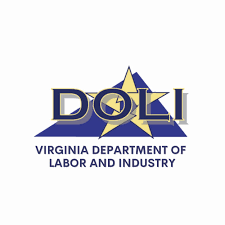







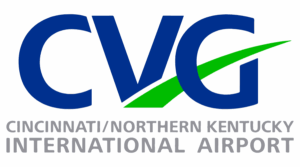

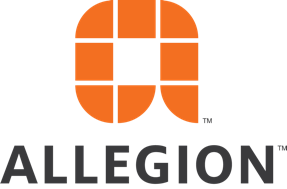
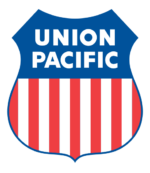

March 26, 2011
We always get the answer…”We do not have any temporary operations,” so that does not apply to us. A good auditor will educate the site personnel by taking them out to the field and finding a bypass around a control device. Then, we will ask for the “procedure” that is used when the bypass is open and the control device is “temporarily” out of service. If you...
Read More
March 25, 2011
Often we see facilities viewing MOC and PSSR’s management systems as DUPLICATIVE efforts. There is a distinct difference between these two PSM/RMP requirements. Basically, this is how it was so explained to me by Russ Evanston, one of the founding fathers of PSM.
…
HomeRead More »
Read More
March 25, 2011
OSHA and EPA are now citing for not doing MOCs on personnel changes! The debate rages on for those living in the PSM/RMP world. Just this week, a client called me to help them with an audit finding they received in a third-party audit. The auditor wrote the finding that they were not considering personnel changes in their MOC program. I too often write a similar finding when I come across situations...
Read More
March 25, 2011
Well I told you last week that I would scare the !@#$ out of a lot of you, so here it goes. Nitrogen can be your ignition source if it is NOT applied and used properly.
…
HomeRead More »
Read More
March 25, 2011
I have always said that 90% of establishing a safety culture is communication of safety ideas and information. Safety is competing for the minds of all workers to THINK about SAFETY in all that they do. We are competing with Quality, Production, Costs Control, Family, etc. in the thoughts of our workers. A lot of marketing companies have made a ton of $ on selling posters and banners...
Read More
March 24, 2011
There is a lot of confusion on reclassifying Permit-Required Confined Spaces to Non-Permit Spaces, which is allowed on spaces with NO KNOWN or POTENTIAL hazardous atmospheres. 1910.146(c)(7) covers this practice. The key DIFFERENCE between “reclassifying” a space using section (c)(7) and using “alternative entry methods,” which is covered under section (c)(5) is ELIMINATION...
Read More
March 24, 2011
Many THANKS to my NEW & RENEWING Corporate Partners in Safety! since 2007 since 2011 since 2009 since 2/11 2011 Fatality Tracker Electrical 6 (2010 = 90) (2009 = 100) Forklift/Manlift Mobile Equipment 27 (2010 = 110) (2009=88) Mining 43 (2010 = 480) (2009 = 586) Explosions 48 (2010 = 246) (2009 = 302) Cranes 6 (2010 = 50) (2009 = 82) Falls 23 (2010 = 139) (2009 = 172) (2008 = 250) Work Zone...
Read More
March 23, 2011
“Never saddle a dead horse” means that when using your Crosby clips, the “U Bolt” is ALWAYS over the DEAD part of the cable and NEVER on the part of the cable that will see the load applied to it. In other words, NEVER have the u-bolt over the load side of the cable. Here is a diagram and instructions from Crosby’s website showing the proper use of their clips. …...
Read More
March 22, 2011
“Recognized And Generally Accepted Good Engineering Practice” (RAGAGEP) – are engineering, operation, or maintenance activities based on established codes, standards, published technical reports or recommended practices (RP) or a similar document. RAGAGEPs detail generally approved ways to perform specific engineering, inspection or mechanical integrity activities, such as fabricating a...
Read More
March 22, 2011
I am often asked why I do these publications and how did they get started. Here is the history and reasoning behind the alerts. The year was 1993. Recent graduate and ready to save the world, my first job was at a ink resin plant in SW Louisiana. PSM was red hot as it had just come out the year before. What a great time to be getting into the safety field. PSM really...
Read More
March 22, 2011
At a minimum, the plan must include but is not limited to the following elements [29 CFR 1910.38(c)]: Means of reporting fires and other emergencies Evacuation procedures and emergency escape route assignments Procedures to be followed by employees who remain to operate critical plant operations before they evacuate Procedures to account for all employees after an emergency evacuation has been completed...
Read More
March 22, 2011
In most circumstances, immediate evacuation is the best policy, especially if professional firefighting services are available to respond quickly. There may be situations where employee firefighting is warranted to give other workers time to escape or to prevent danger to others by the spread of a fire. In this case, you as the employer are still required to have an EAP. To help you decide whether...
Read More


